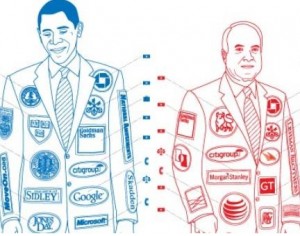Fourth International Conference on Education, Labor and Emancipation
This year’s Theme: Manifesto for New Social Movements: Equity, Access, and Empowerment
It will be help in Salvador, Bahia, Brazil on June 16th – 19th 2009.
Scholars, teachers, students and activists from various fields and countries will convene in Salvador, Bahia (Brazil) to compare theoretical perspectives, share pedagogical experiences, and work toward developing a global movement for social justice in and through education. We invite proposals from the following perspectives: indigenous, feminist, postcolonial, Marxist/neomarxist, queer theory, critiques of neoliberalism/globalization, CRT, liberation theology, anthropology, comparative/international education, etc. Visit our website for more information. http://academics.utep.edu/confele
We appreciate if you can forward this invitation to others who may be interested.
Please do send in your proposals, here are the guidelines:
CALL FOR PROPOSALS
We are currently witnessing the emergence of a new context for education, labor, and emancipatory social movements. Global flows of people, capital, and energy increasingly define the world we live in. The multinational corporation, with its pursuit of ever-cheaper sources of labor and materials and its disregard for human life, is replacing the nation-state as the dominant form of economic organization. Faced with intensifying environmental pressures and depletion of essential resources, economic elites have responded with increased militarism and restriction of civil liberties.
At the same time, masses of displaced workers, peasants, and indigenous peoples are situating their struggles in a global context. Labor activists can no longer ignore the concomitant struggles of Indigenous peoples, African diasporic populations, other marginalized ethnic groups, immigrants, women, GLBT people, children and youth. Concern for democracy and human rights is moving in from the margins to challenge capitalist priorities of “efficiency” and exploitation. In some places, the representatives of popular movements are actually taking the reins of state power. Everywhere we look, new progressive movements are emerging to bridge national identities and boundaries, in solidarity with transnational class, gender, and ethnic struggles.
At this juncture, educators have a key role to play. The ideology of market competition has become more entrenched in schools, even as opportunities for skilled employment diminish. We must rethink the relationship between schooling and the labor market, developing transnational pedagogies that draw upon the myriad social struggles shaping students’ lives and communities. Critical educators need to connect with other social movements to put a radically democratic agenda, based on principles of equity, access, and emancipation, at the center of a transnational pedagogical praxis.
Distinguished scholars from numerous fields and various countries will convene in Salvador, Bahia (Brazil) to compare and contribute to theoretical perspectives, share pedagogical experiences, and work toward developing a global movement of enlightening activism. Issues related to education, labor, and emancipation will be addressed from a range of theoretical perspectives, including but not limited to the following:
Critical Pedagogy
- Critical Race Theory
- Postcolonial Studies
- Marxist and Neo-Marxist Perspectives
- Social Constructivism
- Comparative/International Education
- Postmodernism
- Indigenous Perspectives
- Feminist Theory
- Queer Theory
- Poststructuralism
- Critical Environmental Studies
- Critiques of Globalization and Neoliberalism
- Liberation Theology
Proposals may be offered as panel presentations or individual papers. Please indicate type of proposal with the submission.
Individual paper proposals should contain a cover sheet with the paper title, contact information (e-mail, address, telephone number, and affiliation), a brief bio, for each presenter, and an abstract of no more than 250 words (not including references). Please indicate whether you will present in Portuguese, Spanish or English. Presenters who wish to present in Portuguese should nevertheless include an English or Spanish translation of the abstract with their submission.
Panel proposals must include a cover sheet with the panel title and organizers’ contact information (e-mail, address, telephone number, affiliation), as well as an abstract of the overall panel theme (no more than 400 words, not including references) and abstracts/bios for each paper included in the panel. Please indicate whether panel members will present in Portuguese, Spanish or English. Proposals submitted in Portuguese should include translations (either English or Spanish) of the panel theme with each individual abstract.
Please submit proposals by E-mail only to: confele@utep.edu . THE DEADLINE FOR PROPOSALS IS March 1st, 2009. Proposals must be accompanied by your conference registration in order to be considered.
Following the tradition of the last three conferences, a book will be produced comprising the most engaging papers from CONFELE 2009, as selected by an editorial board. Presenters wishing to be considered for this volume should submit full papers (in APA style) for review by August 1st, 2009.


